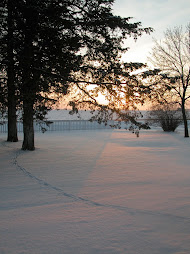
First, a math lesson: One aging mother moving into my home (which is full of books) PLUS mother’s two television sets PLUS one missed appointment between me and the cable guy EQUALS one stressed out daughter in need of a quiet library wherein I might hide.
Thank you Mr. Jefferson!
Litera Scripta Manet. This Latin phrase can be found in the Librarian's Room in the Thomas Jefferson building of the
Library of Congress in Washington, D.C. Translated, the phrase touches this writer’s soul: The Written Word Endures.
The Library of Congress is the nation's oldest federal cultural institution. It was founded in 1800 when the seat of federal government moved from Philadelphia to Washington, D.C. Its original mission was to create a collection of books useful to Congress; the library was housed in the Capitol building until 1814 when British troops set the building ablaze. Within a month, retired President Thomas Jefferson offered his personal library as a replacement.
Jefferson had spent 50 years accumulating books, "putting by everything which related to America, and indeed whatever was rare and valuable in every science," as he stated about his collection. Jefferson’s library was considered to be one of the finest in the United States; his collection included books in foreign languages and volumes of philosophy, science, literature, and other topics not normally viewed as part of a legislative library. Jefferson wrote, "I do not know that it contains any branch of science which Congress would wish to exclude from their collection; there is, in fact, no subject to which a Member of Congress may not have occasion to refer."
In January 1815, Congress accepted Jefferson's offer, appropriating $23,950 for his 6,487 books, and the foundation was laid for a great national library. The Jeffersonian concept of universality, the belief that all subjects are important to a collection of American legislature, was the rationale behind the comprehensive collecting policies of today's Library of Congress.
I, for one, am grateful for Jefferson's vision; my first book, "The Bond Between Brothers," is part of the Library's collection. In fact, today, the Library’s collection contains books, recordings, photos, maps and even unpublished manuscripts – all readily available to the American people. Much of its collection can be viewed
online.
The Library vows to sustain and preserve a universal collection of knowledge and creativity for future generations; in this way the Library of Congress is more than a repository of knowledge. It is this nation’s collective memory -- one that will last long after mother forgets what she missed on television because I missed my appointment with the cable guy.








